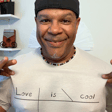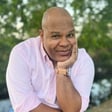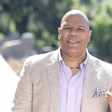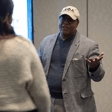
14. Xi | The Psychology of Hazing with Leslie M. Brown and Von Eaglin
The second part of the series on hazing is a throwback interview with two mental health professionals. Leslie M. Brown and Dr. Von Eaglin gave their thoughts about what motivates students to commit acts of hazing. This interview was first posted in 2014 on "The Eddie Francis Podcast Show" and it was reposted on "For Our Edification."
About the Guests
Leslie is a licensed marriage and family therapist with extensive experience working with military veterans, veterans' families, and women/families in substance abuse recovery. She is a doctoral candidate at Barry University where her research interests include the evolution of families, polyamory families, race/class/gender and cultural competency as well as indigenous and traditional mental health healing modalities. Leslie earned her Master of Science in marriage and family therapy from St. Thomas University (Fla) and her bachelor's degree from Hampton University in mass media arts. She is a member of Zeta Phi Beta Sorority Inc.
Von is a Licensed Professional Counselor who talks about positive psychology on One Life Radio. Von has experience working with physically and sexually abused youth, couples, men’s issues, anger management, adolescents, depression, anxiety, and addictions. Von earned his Ph.D. in counseling from the University of North Texas where he also completed his master's in education and his bachelor's in business administration. Von is a member of Alpha Phi Alpha Fraternity Inc.
Ethocast is a "For Our Edification" limited series and is supported by Edify Ventures, LLC.



















